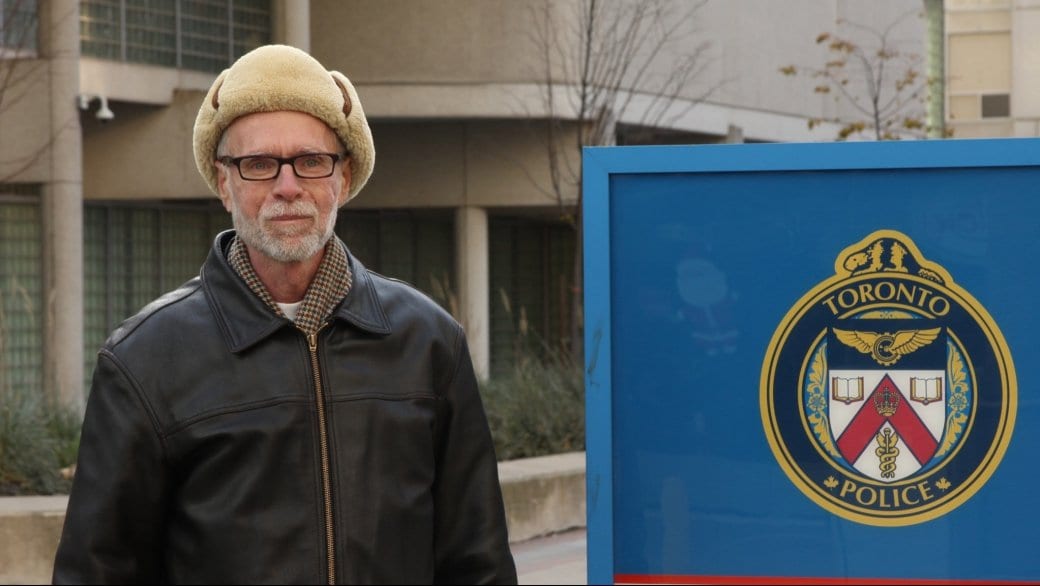It was already midnight on Feb 5, 1981, when I got a call that the baths were being raided. I rushed over to the Club baths and spent the early morning interviewing some of the shell-shocked men released with a piece of paper telling them they had to appear in court. “Is my name going to be in the paper?” one older guy with a Portuguese accent asked me. He had tears in his eyes. I assumed he was married. Others reported doors being kicked down, lockers torn apart with crowbars, verbal and physical abuse. Many of the men were too furious or frightened to talk. Some were not released at all, and I watched helplessly as they were loaded into paddy wagons to be dragged down to cells at 52 Division.
This was before Human Rights protection. You could be fired or evicted for being gay. Logically, that meant most gay men were in the closet. This was before Grindr, Jack’d etc. That meant if you wanted to hook up, you needed to go where other gay men were. And on a Thursday night in February, that basically meant the baths.
The Right to Privacy Committee coordinated the community response. That included massive demonstrations, fundraising to defend those charged in court, legal coordination, rallies where allies such as Margaret Atwood spoke out, lots of bad press for the cops and the creation of the Citizens Independent Review of Police Actions (CIRPA), where the RTPC joined forces with black and Asian groups who were also targets of police abuse. CIRPA had a phone line where people could report police racism, sexism and homophobia, and receive advice on their legal options. It kept statistics on such abuse, and challenged police at city hall.
Last week there was a lot of buzz about Police Chief Mark Saunders’ planned press conference. Word was that, 35 years after the fact, he was going to apologize on behalf of the force for both the 1981 raids and the subsequent raid on the Pussy Palace women’s bathhouse in 2000.
Turns out he didn’t actually apologize. He “expressed regret.” I can see how, in retrospect, the police might regret the raids. They were humiliated in the courts, losing 90 percent of the cases. They were exposed as a bunch of homophobic thugs, and they felt the heat at city hall. The gay community emerged stronger and more united than ever. And the creation of CIRPA helped expose the systematic police racism experienced by minorities. All in all, it didn’t turn out how the cops had expected.
And the regrets were only for what had happened in 1981. The Women’s Bathhouse Committee (organizers of the Pussy Palace) had rightly rejected such an “apology.” Chanelle Gallant called it “well-meaning and well intentioned” but essentially meaningless. “It doesn’t reflect a change in the actual practices of the police,” she told CBC.
I think Gallant is too generous.
The police have been taking a lot of heat recently — for their continuing racial profiling and carding of black Torontonians, for shooting down people in mental health crisis, for the already bloated and ever expanding police budget. No one has ever been held accountable for the G20 fiasco when police kettled and arrested more than 1,000 peaceful demonstrators and bystanders, crammed them into cages and subjected them to sexist and homophobic abuse. So the cops needed some good press, and what better way to do that than to throw a bone to the gays at Pride about something that happened in the last century?
This half-hearted “apology” is a cynical public relations move. No one has been held accountable for 1981. No reparations have been made for the lives destroyed. Saunders couldn’t even bring himself to say “sorry.”
As I was writing this piece, the police held a second press conference to unveil a new mural on Church Street. Congratulations to Black Lives Matter Toronto who disrupted the ceremony. Spokesperson Rodney Diverlus called both the “apology” and the mural “PR tools used to mask the reality of police relations amongst the queer and trans community: black people, indigenous people, sex workers et cetera.” Police chief Saunders still refuses to meet with Black Lives Matter or to consider their demand for an overhaul of the Special Investigations Unit, the civilian agency that investigates police crimes.
While cops may now tend to leave alone more “respectable,” normative looking, white gay men and lesbians who appear to have sufficient disposable income, they continue to abuse trans sex workers, the homeless, people of colour and anyone else they feel might be vulnerable — queer or straight. And police brass continue to block reforms to ensure community accountability today, just like they did in 1981.
Rather than trying to pinkwash their image with “regrets” for something that was already widely condemned 35 years ago, police should be changing their behavior today. Half-hearted regrets at conveniently-timed Pride month press conferences just perpetuate an abusive relationship. We should greet them with the derision they deserve.

 Why you can trust Xtra
Why you can trust Xtra


